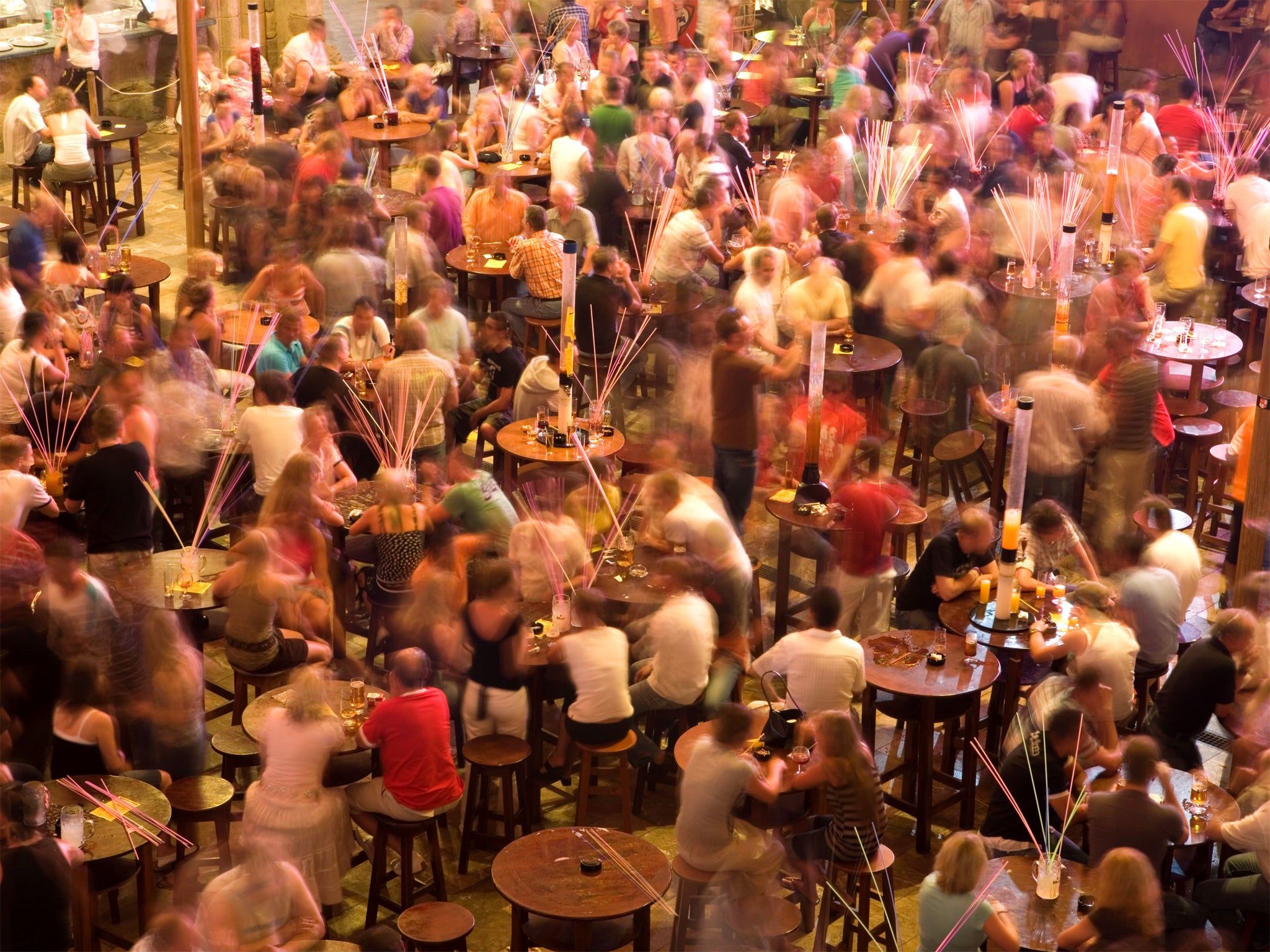'Vomiting in public is not on': Why the party’s over for Mallorca’s boozy British tourists

Your support helps us to tell the story
From reproductive rights to climate change to Big Tech, The Independent is on the ground when the story is developing. Whether it's investigating the financials of Elon Musk's pro-Trump PAC or producing our latest documentary, 'The A Word', which shines a light on the American women fighting for reproductive rights, we know how important it is to parse out the facts from the messaging.
At such a critical moment in US history, we need reporters on the ground. Your donation allows us to keep sending journalists to speak to both sides of the story.
The Independent is trusted by Americans across the entire political spectrum. And unlike many other quality news outlets, we choose not to lock Americans out of our reporting and analysis with paywalls. We believe quality journalism should be available to everyone, paid for by those who can afford it.
Your support makes all the difference.The Spanish holiday island of Mallorca is eager to move away from its image as a low-budget, raucous, drink-sodden holiday venue and go upmarket.
“We’re not turning away from mass tourism, far from it,” Alvaro Gijon, deputy mayor of Palma and in charge of tourism on the local council, told The Independent. “It just needs to be a little more orderly. People vomiting and heeding calls of nature in public is not on.”
Mallorcan officials wish to transform the island from a package holiday attraction into an upmarket holiday destination, like St Tropez or Miami, and attract well-heeled visitors from China and Dubai.
Many luxury yachts tie up in Palma when not sailing around the Mediterranean.
The plan is to transform the image of the seafront strip, the Playa De Palma, imposing a 24-hour public drinking ban and upgrading hotels to four or five stars.
What tourism chiefs do not want are crowds of noisy tourists descending on the beach in an echo of informal – and cheap – gatherings across Spain on summer nights known as botellones (“big bottles”), in which teenagers try to keep one step ahead of the police.
“People who want to party need to know there’s a bunch of perfect places to do that round the clock. But newlyweds and people who want to relax and have a quiet time with the family should be able to do so, too,” Mr Gijon said.
Nearly two million British holidaymakers visited Mallorca last year, according to figures.
Spain depends on tourism for a tenth of its economy – in recession for two years – and to provide jobs .
View From Mallorca
“There are two places I would never go to because they’re full of British and German tourists who get drunk [and] pick fights, but everywhere else is fine. There are far bigger problems on the island, like a shameful lack of public transport and lack of support for renewable energy.”
Patricia Cieza de Leon, from Santa Eugenia, near Palma
“Mallorca has been all things to all people for years, you just have to take the rough with the smooth. The rich aren’t loyal, they can up anchor any time and sail off to Croatia, whereas the 18-year-old who comes over on a shagfest will be back in 10 years with his family.”
British-born Barbara Stone, in Calvia, Palma
“Some of the older residents are dismayed, but I think the majority accept that if we don’t have the same high jobless levels as the rest of Spain, it’s down to tourism; it’s our lifeblood. To those of us who live here, the island’s paradise.”
Scottish-born Kate Metink-Duncan, Calvia.
Martin Roberts
Join our commenting forum
Join thought-provoking conversations, follow other Independent readers and see their replies
Comments